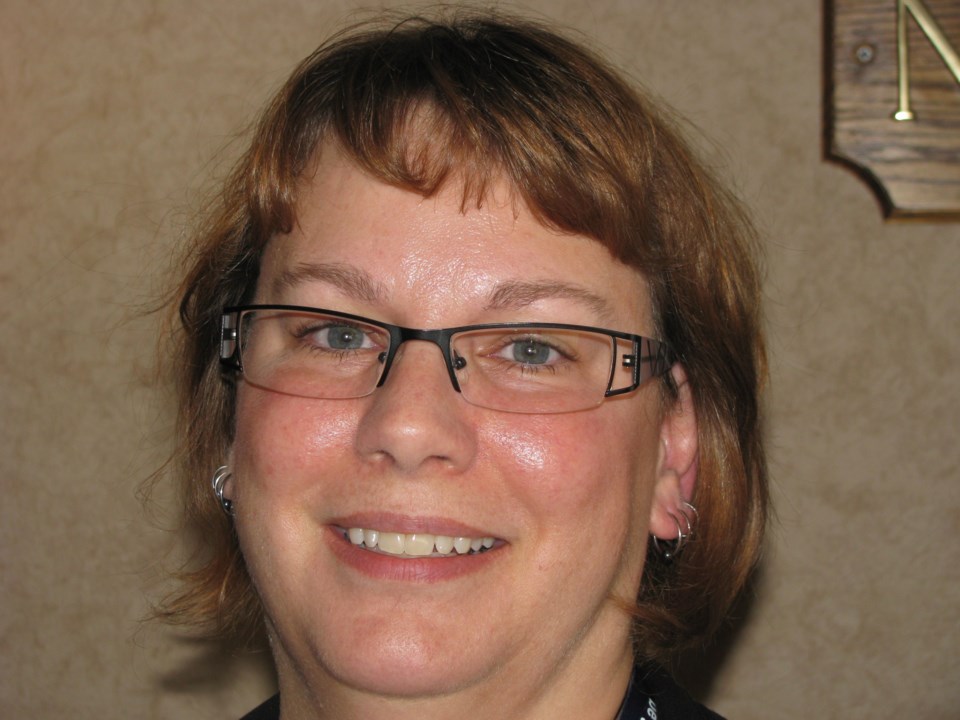Mark NIELSEN Citizen staff
A Prince George widow shared the details Monday of how her husband's refusal to seek medical help has caused lasting suffering for his family two years after he died from brain cancer.
At age 50, Phil Meise succumbed to the disease just five weeks after he had been diagnosed, but the telltale signs something was wrong were evident for several years, said Kathleen Meise when she spoke at the conference hosted by RoadHealth.
Although primarily focused on improving safety for professional drivers, the issue of men's attitudes towards dealing with pain, injuries and disease were a major theme at the conference and Meise is hoping the story will be a lesson for others.
Meise, 44, said she noticed a change in her husband's personality as far back as 2002.
"He was normally very laid back, really easy going and all of a sudden he got very erratic and irrational, really agitated, just not his usual self," Meise said.
Her husband started withdrawing from family outings, like turkey dinners and school events, and could no longer make everyday decisions, like knowing what clothes to put on, and his drinking became excessive.
By 2004, he developed migraines and severe nosebleeds but refused to go to the hospital for treatment. Meanwhile, his drinking got worse - most nights he usually drank himself to sleep and spent the night on the couch.
"I went to his doctor and explained all this to him and he agreed, something is not right," Meise said. "'But if you can't get him in here, there's nothing I can do for him."
After he died in 2009, Meise found out her husband did go to the doctor in 2004 and received a scan that showed one-third of his brain was covered in a mass. He was told it was probably cancer and told to go to Vancouver immediately but refused to get any further treatment
As a result of that decision, Meise said her family is ineligible for life insurance.
What's more, they'll never know if Phil would still be alive today if he went through treatment or at least have given the family more time to prepare.
"For the kids, it would've made a big difference," Meise said. "They feel almost that they watched him die, they can't accept that he chose not to be with us."
Meise said she was sure he was doing what he felt was best by sparing his family from watching him suffer - both his parents died from cancer and "it's not pleasant" - but she and her two children - a nine-year-old son and a 14-year-old daughter - are still in counselling.
"My son rarely talks about but he panics whenever I'm not home and he has fits of rage," Meise said. "My daughter puts on a front - all she ever says is 'I'm fine,' but the pain is written all over her face and she recently told me that she can't love me or her brother anymore because someday we're going to die and she can't handle that again."
Breaking down the wall her daughter has built up could take 10, 15, 20 years of therapy, Meise said, and added her daughter is afraid of being sad because it would upset her little brother.
"We have to deal with all of this for something that might have been preventable because Phil did not want to take the time off work to go to the doctor or be too embarrassed," Meise said. "Or maybe he was too scared to deal with what the consequences of having cancer were going to do to him."
Meise said her experience shows that men have to change how they think about healthcare.
"You can't just ignore it, it doesn't go away, it's going to get worse and worse and it's going to hurt more and more of the people that you know," she said. "So deal with it right off the bat, it might become a little embarrassing...but it could save your life."
NORTHERN HEALTH REACHING OUT TO MEN
Northern Health is in the process of developing strategies to encourage men to take better care of themselves and to seek medical help before it's too late.
"We know that men in Northern B.C. don't access health services the same way that men in the rest of the province do," said Northern Health men's health co-ordinator Brandon Grant during an interview Monday at the RoadHealth conference.
The process saw Grant hold consultation meetings in communities across B.C. and one of the key lessons learned are that health messaging needs to be relevant and that men need to be "part of the conversation" so officials know what will work and what won't work.
Initiatives include a mobile screening service where men can get their blood pressure and cholesterol assessed and getting the word out where men are found - like hockey games.
Ideas also include creation of a "maintenance manual" - similar to the ones used for cars, but aimed at men's health.
Companies who encourage men to take care of themselves will see a return on investment, RoadHealth co-ordinator MaryAnne Arcand told conference delegates earlier in the day. Healthy employees are more productive and are less prone to taking sick days, she said, and studies show every dollar put into promoting good health generates a $2.50 return.



